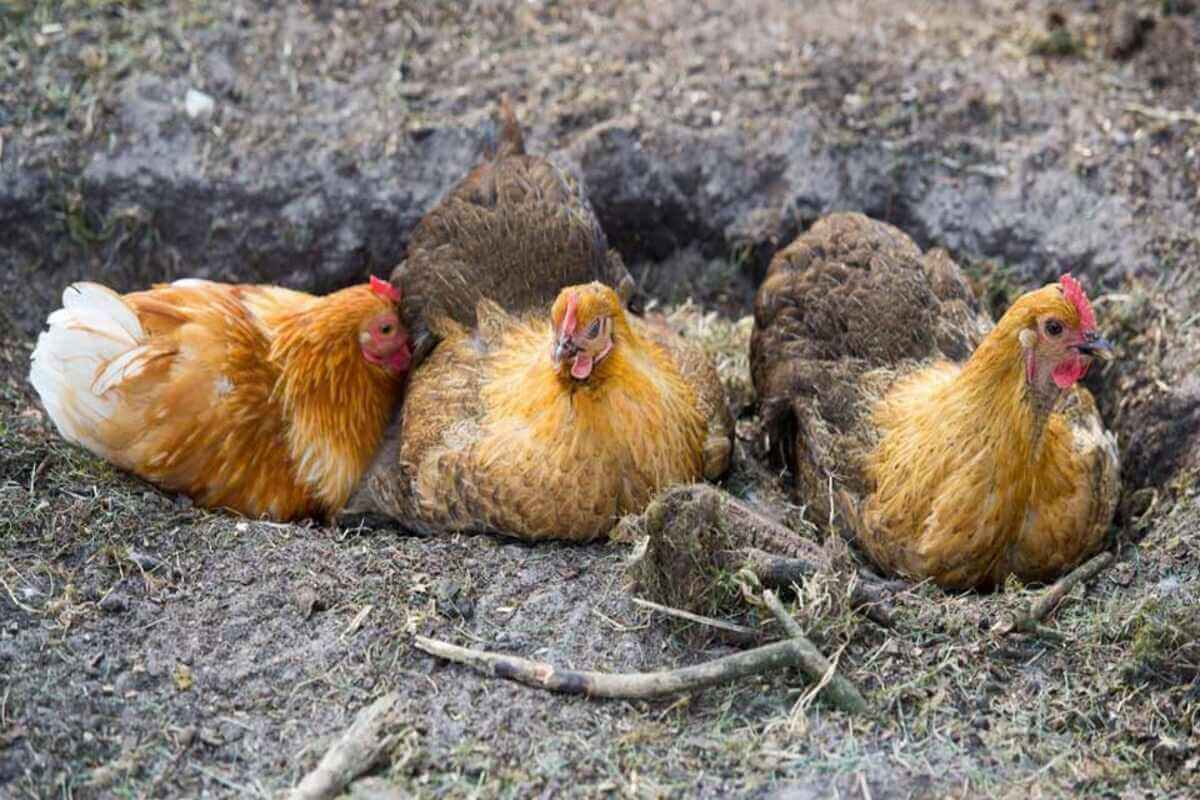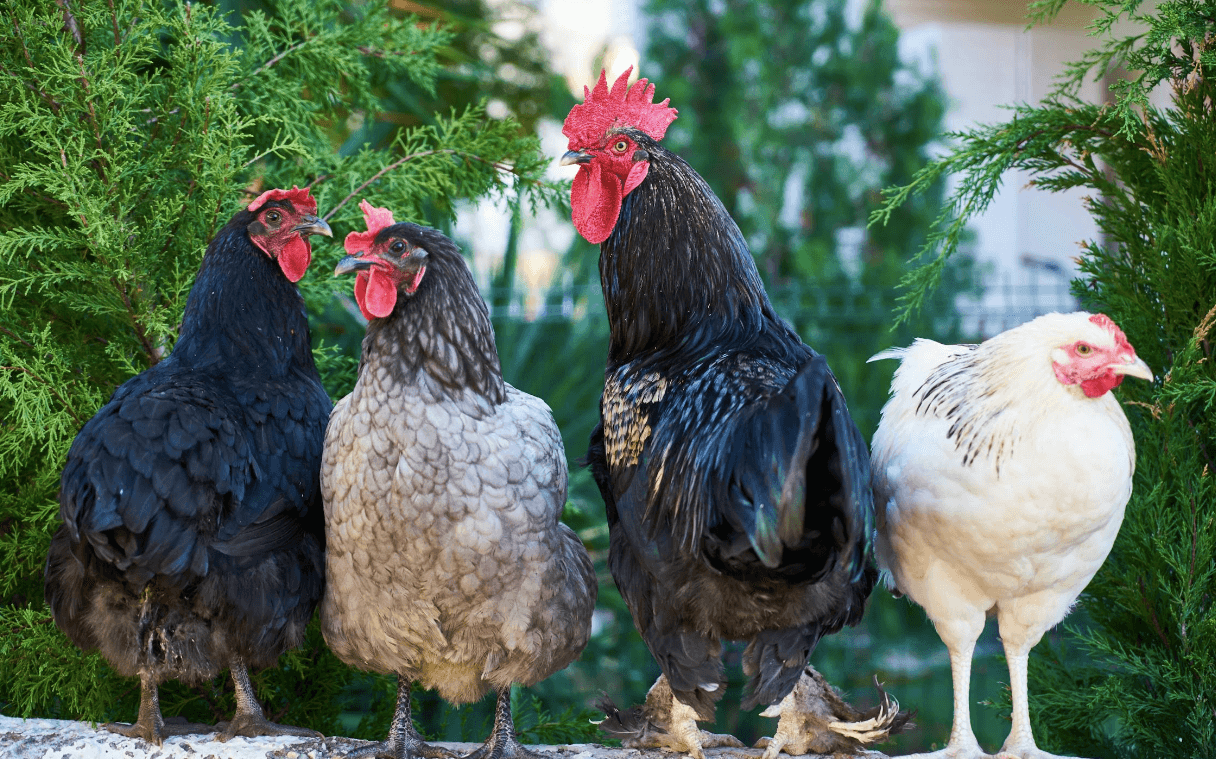Do racoons eat chickens you wonder? Yes, they do! In fact, racoons are a significant threat to backyard chicken flocks. They’re skilled climbers, excellent at opening latches, and they strike in the middle of the night while you’re fast asleep.
What’s worse, chicken coops, especially those that aren’t adequately secured, are prime targets for racoons.
Racoons will exploit any weakness in a coop's defense — including loose panels, unsecured doors, and weak wire meshes. They’ll even create stress for your entire flock while they’re exploiting those weaknesses.
Protecting your chickens from racoons is possible if you follow the right advice. It involves creating a secure environment for your chickens to deter racoons. This means having a coop with good structural integrity and practicing good maintenance habits.
Today, we'll explore those practical habits and look at effective strategies to ensure your chickens' safety against racoons. We’ll draw from years of experience and valuable insights to help you protect your flock with confidence and peace of mind. Let’s get started!
1 - Strengthen Your Coop's Security
First, you want to start with the basics: the material of your coop. Look for coops made from strong, durable wood. For example, non-splintering fir timber is a good choice. It can withstand many outdoor elements, including tampering from pesky racoons.
Using a water-based primer coat also adds a layer of protection to your coop, but you should consider additional treatments like lacquer for longevity and resilience.
Next, think about your coop's design, particularly the entry points. It comes as no surprise that having a secure hen house door is essential when protecting against racoons. Look for doors with strong latches (preferably metal) that racoons can't easily manipulate. An automatic door opener is an excellent example of this.
Strengthening underneath the coop is important, too. Ensure there's no easy way for racoons to burrow under or climb into the coop. Some coops, like our Leghorn Cottage Coop, have additional clearance under the chicken house — an excellent advantage for stopping racoons from getting in.
Finally, pay attention to the nesting boxes. Coops with supported nesting boxes prevent sagging — a common issue that can create vulnerabilities racoons will try to exploit.
Basically, to keep your chickens safe from racoons, you need a well-thought-out coop design that addresses potential weak spots.
2 - Install Predator-Proof Fencing
Having predator-proof fencing is another way to protect your chickens from racoons. So, choose a durable, high-quality wire mesh for your fencing. A one-inch coated wire mesh effectively keeps out racoons because it's difficult for them to tear or bend. The mesh size also prevents them from reaching through and scratching your chickens.
Likewise, we recommend choosing a fence height of around 5 to 6 feet, as racoons are excellent climbers. An outward-angled top can even deter racoons from scaling over.
When securing the base of your predator-proof fence, you must also remember the digging habits of racoons. Like our last tip, where clearance from the hen house is a good idea, burying your fence at least 12 inches deep or using an “L” shaped layout at the base can effectively prevent racoons from digging under.
Last but not least, for an added layer of security, look into getting a bottom extension wire mesh — similar to the one used in our Chicken Coop Predator Protection Kit. This kit attaches to the bottom of your coop, extending outward to form a sturdy barrier against digging predators. It's a practical, hassle-free way to bolster your coop's defense against racoons.
3 - Secure Food and Water Sources
Securing food and water sources is another important way to deter racoons from your chicken coop. These clever creatures always seek an easy meal; unsecured feeders and waterers are an open invitation.
So, first things first, use raccoon-proof containers for your chicken feed. These are typically designed with secure lids that racoons can't easily open — they often feature complex locking mechanisms that racoons find difficult to navigate.
Also, placing food and water inside the coop or in a secured run area — especially at night — can prevent racoons from accessing them. You should pair this with implementing a feeding schedule that limits food availability to daytime hours.
Cleanliness plays a pivotal role in raccoon prevention, too. Leftover food scraps and spilled feed can attract racoons. Make it a daily routine to clean up feed spillage and remove uneaten food before nightfall. Sweep any loose feed from the coop floor and use a dustpan or handheld vacuum for smaller areas.
For uneaten food, especially wet food, simply remove them from feeding areas before they attract racoons.
Regularly washing feeders and waterers helps prevent mold and residue buildup, too, which can further prevent racoons. It reduces the scent trails that can lead them right to your coop!
Finally, ensure that racoons can’t easily tip over your waterers, as they’ve been known to play with water bowls. This creates a mess and a potential attractant for even more racoons. Using heavier, more stable waterers can prevent this.
4 - Perform Routine Coop Inspections and Maintenance
You should perform routine inspections and maintenance to help keep your chicken coop secure from racoons. Regularly check every part of the coop for signs of damage, such as cracks, holes, or loose panels. All of these could be potential entry points for predators.
Promptly repair any issues you find to maintain the structural integrity of the coop. Pay special attention to the roof and foundation, as they are important for your coop’s overall stability and protection. Look for any loose shingles and tiles on the roof and ensure it's watertight to prevent water damage and weakening of the structure.
In the foundation, check for signs of erosion or instability. Also, ensure the coop is level and firmly anchored to the ground to prevent tipping or shifting.
Don’t forget to keep your coop clean. This one’s super important, so we’ll say it again! Keep your coop clean.
Regular cleaning, including removing waste and refreshing bedding, prevents attracting racoons through strong odors. Ensure feeding and water areas are tidy and free from leftover food, which can draw racoons.
The easiest way to do this is to develop a schedule that includes daily, weekly, and monthly tasks.
Daily tasks should include removing waste and checking water and food containers. Weekly tasks should include thoroughly cleaning the coop, such as scrubbing and disinfecting surfaces, and monthly tasks should involve conducting a deep clean that includes checking for hidden damages, replacing bedding, and ensuring nesting boxes are clean and secure.
5 - Use Sensory Deterrents
Our last tip for today is to use sensory deterrents. These deterrents play on the senses of racoons, making your coop less appealing to them.
For example, motion-activated lights are particularly effective. Racoons are startled by sudden bright lights, which can stop them from approaching your coop.
Similarly, installing motion-activated sound alarms can create an unpleasant, noisy environment for these usually cautious creatures (just make sure the alarms don’t wake you up, too).
Bonus tip: Don’t want to use an alarm? Consider using a radio. Playing a talk station on the radio at night can be a simple yet effective deterrent. The sound of human voices is often enough to make racoons uneasy and keep them at bay.
You can also use natural repellents. Scents that racoons find disagreeable — like ammonia. Place it around the perimeter of your coop, but do so responsibly. You don't want to harm the racoons (or your chickens, for that matter!).
Remember, while these deterrents are helpful, you should use them with the above methods. What it comes down to is secure coops and fencing for maximum effectiveness. However, consistently changing the type and location of these deterrents can also prevent racoons from getting used to them.
Secure Your Flock: Choose the Chicken Coop Company
If you follow the above tips, you shouldn’t have any problems keeping your chicken flock safe from racoons. Here’s a quick reminder in the table below:
And that’s about it! Check out our website and big chicken blog for more insights and strategies on keeping your chickens safe. We offer practical tips and in-depth advice that we’ve drawn from years of experience.
You can also get in touch with us (that’s right, we’re real people!), check out our chicken advice page from the chicken lady (see our quick teaser below) and look at our most frequently asked questions.
Don’t forget to check out our apparel and aprons, too. Why keep your love for chickens outdoors? We sell all kinds of socks, bags, and aprons. See you there!





